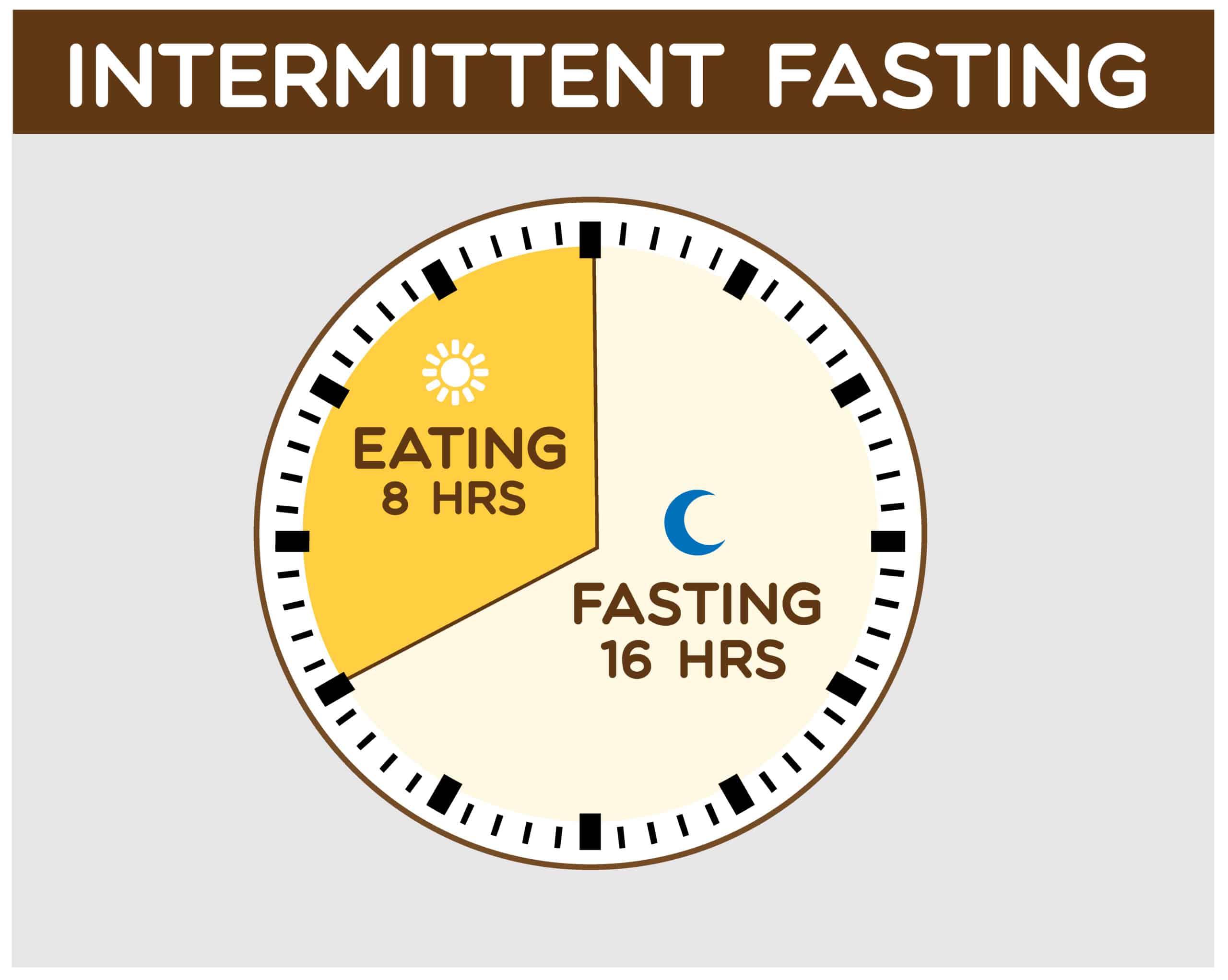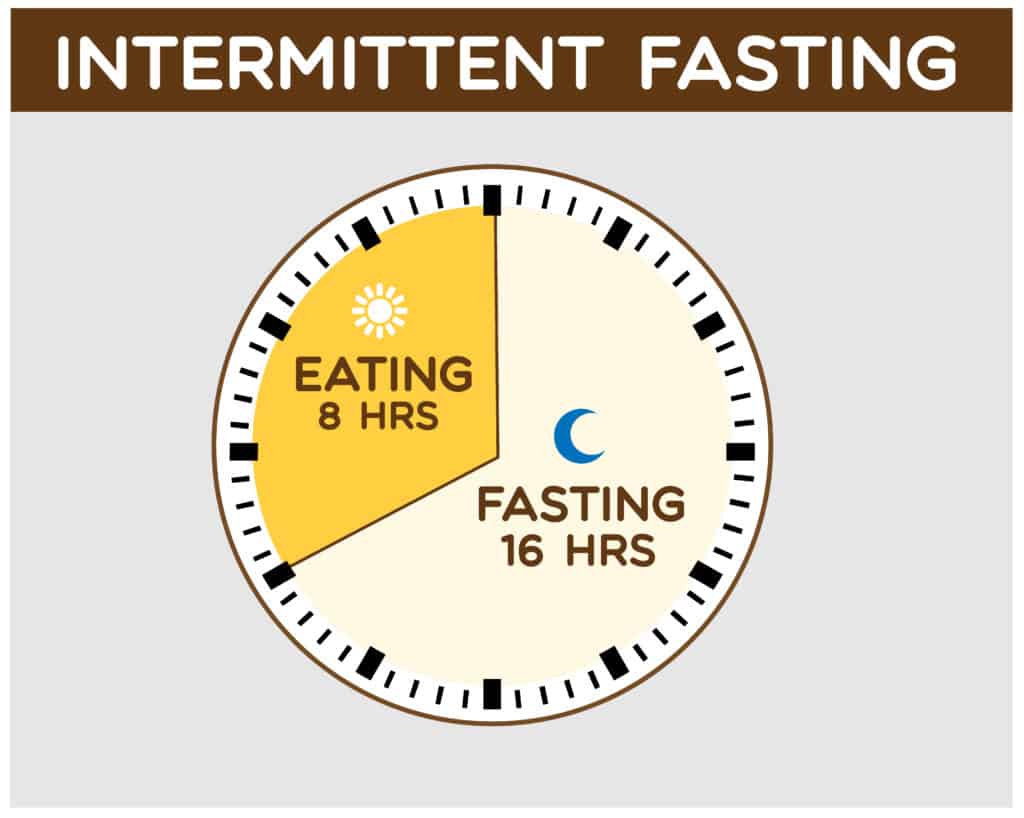More than 45 million Americans go on a diet each year and spend 33 million dollars on weight loss products, according to Boston Medical Center. Most people may lose weight initially but typically end up adding it all back once dieting is stopped. Intermittent fasting (IF) is not a diet but rather a style of eating. You simply have a shorter window of time (typically 8 hours) where you consume all your calories. One of the many benefits of IF is that it has been shown to lose unwanted fat, compared to muscle and fat seen with typical diets. Read here about additional benefits of IF.
Different Styles of Intermittent Fasting
There are different options to try for those interested in IF. It is important to find the right eating pattern for you. Individuals more experienced with IF, might want something more aggressive, such as the 5:2 diet. While others may want to try 16:8 intermittent fasting. When looking into options, consider starting with a smaller, 12 hour, window of no eating compared to 16 hours. Build on that 12 hour window over the next few weeks, adding an hour every few days or each week. You may have to experiment a bit to find out what works best for your lifestyle.
Research Shows Fasting Offers Many Health Benefits
After you eat a meal, the body passes through various metabolic states. The four states are seen below:
- Fed state
- Post-absorptive state/early fasting
- Late fasting state
- Starvation
For most of the time the body uses glucose (carbohydrate) for energy. Following a meal, glucose levels rise, and fat is stored, as triglycerides, in adipose tissue (fat). In a normal situation, your body uses the stored glycogen (found in the liver and muscles) for energy. Now, let’s add intermittent fasting into the picture. What happens then? Well, when you’re in fasting state, all that stored glycogen has been used up. The body is now forced to take those triglycerides from the stored fat (adipose tissue) and break them down into fatty acids and glycerol. The fatty acids are then converted into ketone bodies, which then get utilized for fuel instead of glucose. You basically tap into your fat stores for energy at this point.
Intermittent fasting works because you are restricting your overall caloric intake, and in turn, put your body into a calorie deficit. According to the Journal of Obesity and Metabolic Syndrome, this is the aspect of IF that may help you lose weight.
Final Thoughts
For anyone interested in trying IF, make sure you drink plenty of water each day while fasting. Some people may experience headaches from consuming less food. A good tip, eat plenty of fiber-rich foods to limit feelings of hunger. Eating protein-rich foods will help you in that department as well. Continue with your strength training program while fasting to help preserve lean muscle tissue. As with most things, this style of eating is not for everyone and may not work for some. It is important to note that IF is not suitable for everyone, and it may have some potential risks and side effects. It is always a good idea to speak to a nutritionist or your physician before making any major changes to your eating style.
Stay Strong Together
Try the award-winning Jefit app for your next workout. Take advantage of Jefit’s exercise database for planning & tracking your strength workouts. Named best app for 2022 and 2023 by PC Magazine, Men’s Health, The Manual, the Greatist and many others. The app comes equipped with a customizable workout planner and training log. The app also has ability to track data, offer audio cues, and has a feature to share workouts with friends. Visit our members-only Facebook group. Connect with like-minded people, share tips, and advice to help get closer to reaching your fitness goals. Try one of the new interval-based workouts and add it to your weekly training schedule.
- 3 Exercises that Will Increase Your Bench Press - December 22, 2023
- 10 Tips to Create Your Best Fitness Routine Yet - December 20, 2023
- Does Losing Body Fat Help Improve Longevity? - December 18, 2023

Share via:




